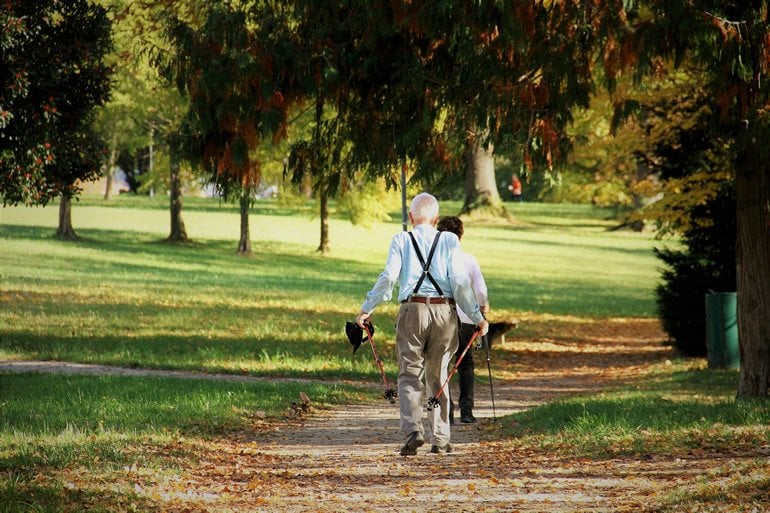Summary: Incorporating simple lifestyle changes, like improving diet, using brain training programs, and exercise may help improve cognition in older adults experiencing cognitive decline.
Source: Wiley
Results from a new study suggest that lifestyle changes may help to improve cognition in older adults experiencing cognitive decline that precedes dementia.
In the study published in the Journal of the American Geriatrics Society, 119 individuals older than 65 years of age who were experiencing cognitive decline were randomized to a control group or an intervention group for 8 weeks. The control group received online information related to dementia and lifestyle risk factors, Mediterranean diet, physical activity, and cognitive engagement.
Participants were instructed to implement this information into their own lifestyles. The intervention group received the same online information, plus active components to assist with implementing this information into their lifestyles: dietitian sessions, an exercise physiologist session, and online brain training.
Over 6 months of follow-up, investigators noted that participants in the intervention group were able to improve their lifestyle and had higher cognition scores than those in the control group. The results suggest that lifestyle-based changes may modify the course of cognitive decline.

“We’ve known for some time that lifestyle changes such as these can reduce dementia risk in the general population. What this study adds is that with the right intervention, people experiencing cognitive decline may retain sufficient neuroplasticity for their brain to ‘bounce back’ from decline,” said lead author Mitchell McMaster, a PhD student at The Australian National University.
Funding: Mr McMaster’s PhD scholarship was supported by the Dementia Australia Research Foundation and the Australian National University, and the study was also supported by Neuroscience Research Australia.
About this neuroscience research article
Source:
Wiley
Contacts:
Dawn Peters – Wiley
Image Source:
The image is in the public domain.
Original Research: Open access
“Lifestyle Risk Factors and Cognitive Outcomes from theMultidomain Dementia Risk Reduction Randomized Contro lledTrial, Body Brain Life for Cognitive Decline (BBL-CD)” by Mitchell McMaster, Psych. Hons., Sarang Kim, PhD, Linda Clare, ScD, Susan J. Torres, PhD, Nicolas Cherbuin, PhD, Catherine DʼEste, PhD, and Kaarin J. Anstey, PhD. Journal of the American Geriatrics Society.







